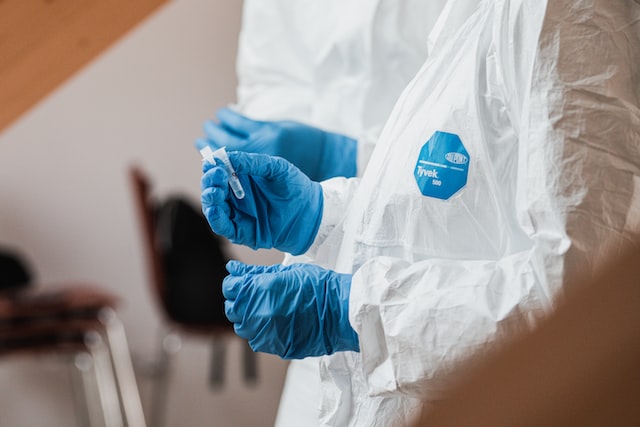Charlottetown, PEI – Throughout the COVID-19 pandemic, the Government of Canada has taken a comprehensive and prudent approach to managing the virus, with measures and actions informed by available data, operational considerations, scientific evidence, and monitoring of the epidemiological situation and best practices both in Canada and internationally.
On January 17, 2023, the Honourable Jean-Yves Duclos, Minister of Health, visited the Atlantic Veterinary College at the University of Prince Edward Island, which will receive $1.5 million from the Public Health Agency of Canada (PHAC) to enhance COVID-19 wastewater testing capacity for the Atlantic provinces.
This project supports the National Wastewater Surveillance Program by increasing the reach of monitoring and allows COVID-19 testing to be completed quickly in the region, without the need to ship the samples to Canada’s National Microbiology Laboratory (NML) in Winnipeg, Manitoba. Wastewater data is an important early warning sign for public health action and decisions for the benefit of communities in Atlantic Canada.
Wastewater monitoring has been essential in COVID-19 monitoring and is one of the key tools guiding the future of public health surveillance. People infected with COVID-19 can shed the virus through their stool, even if they do not have any symptoms. Testing a community’s sewage (wastewater) can help determine if COVID-19 is increasing or decreasing in a community and provides information on the variants circulating within a community. People can also use wastewater trend data to make decisions about personal health measures when going out into their community.
PHAC scientists, along with their Canadian academic and provincial/territorial partners, are leading the way on wastewater surveillance based on its growing use during the COVID-19 pandemic. This knowledge, combined with PHAC’s work with provincial, territorial, municipal, and Indigenous governments to establish a strong network of wastewater testing sites across Canada, has also helped scientists study the presence of other diseases in wastewater, including antimicrobial resistant organisms, mpox (monkeypox), and poliovirus.
The Government of Canada has committed $28.1 million since May 2020 to establish, expand and enhance the pan-Canadian wastewater surveillance program. It provides an innovative and straightforward approach that enables efficient monitoring of a population (or community) for early detection and trending of pathogen activity.
“Wastewater monitoring is the future of public health surveillance for infectious diseases in Canada. It is an innovative tool that currently assists in determining the levels of COVID-19 in communities and provides an early warning to public health authorities of
COVID-19 variants. The funding announced today will increase the range and speed of wastewater testing results for Atlantic Canadians resulting in a rapid and cost-effective approach for early detection of outbreaks and surges.” – The Honourable Jean-Yves Duclos
Quick Facts
- The Public Health Agency of Canada is continuing to collaborate with other federal departments, provincial, territorial, municipal and Indigenous governments and academia across Canada to compile wastewater data into the COVID-19 wastewater surveillance dashboard. The dashboard will continue to be expanded to provide additional data to people in Canada, including additional cities.
- Since wastewater testing is different than clinical testing to diagnose active COVID-19 infections, it provides an additional, independent measure of community transmission.
- For information about how scientists from Canada’s National Microbiology Laboratory are advancing the science of wastewater testing please read: Harnessing the power of wastewater testing to detect COVID-19 outbreaks and Community-led wastewater testing in northern, remote and isolated communities.









